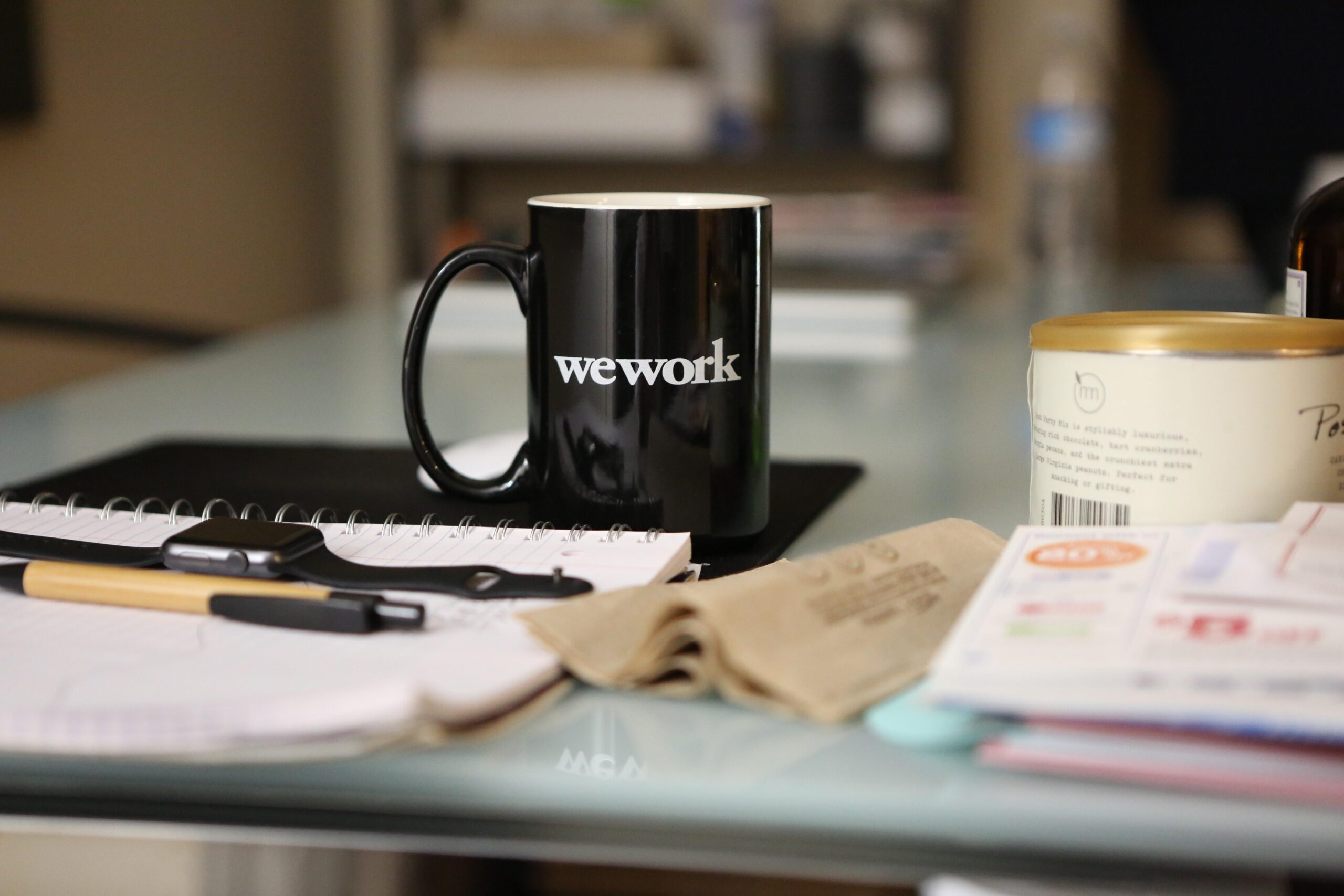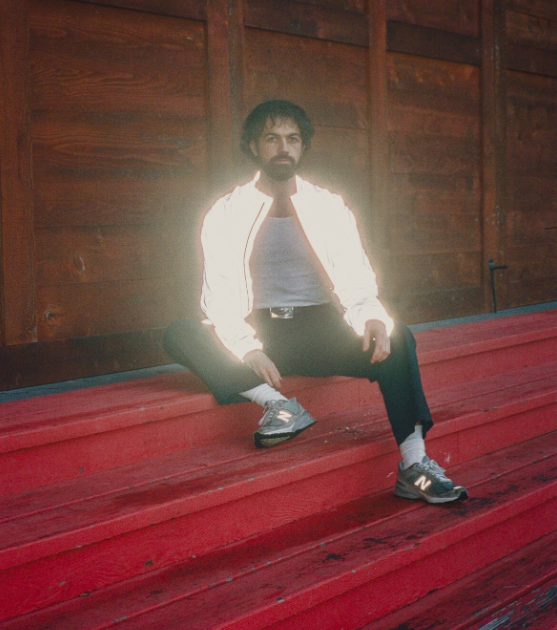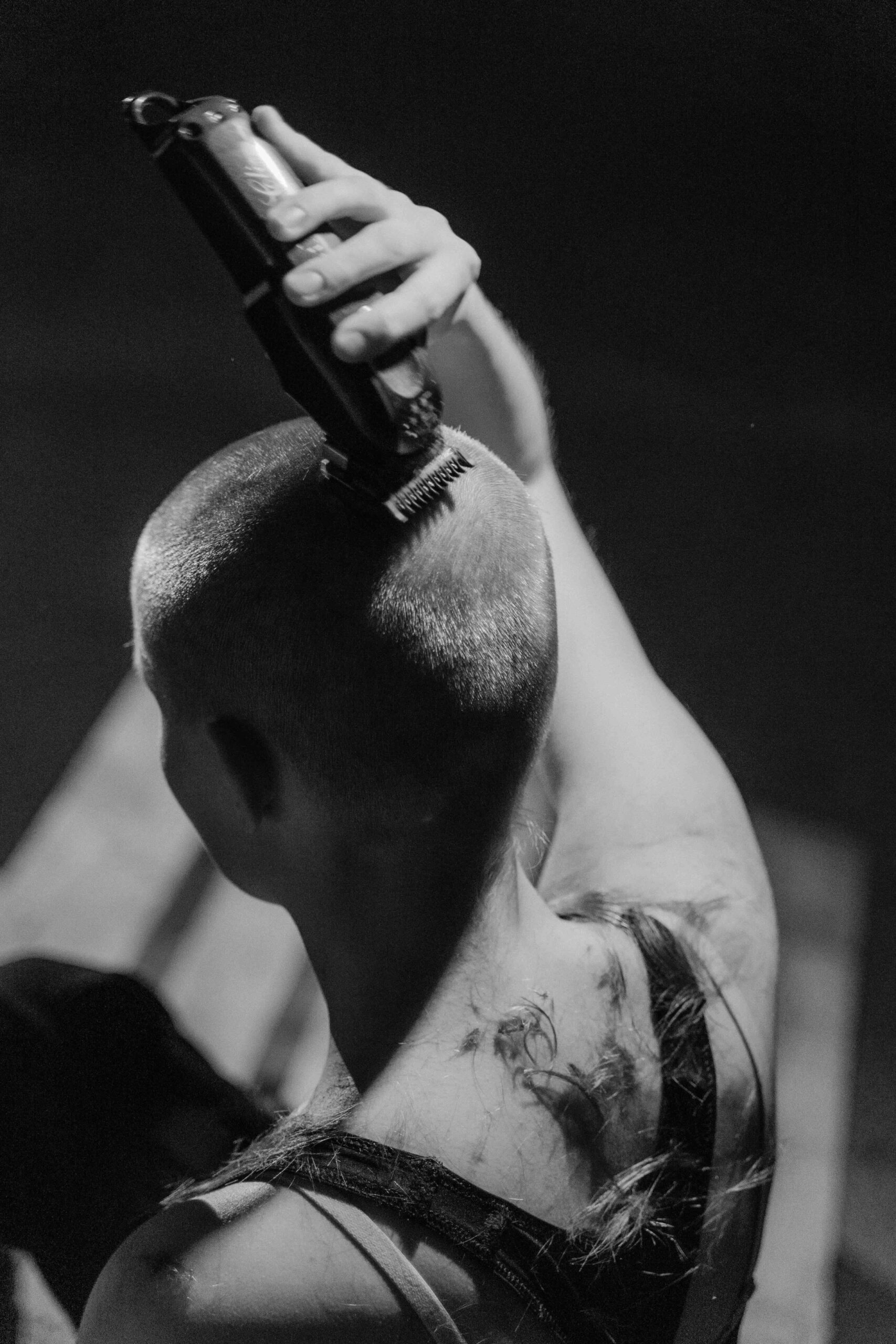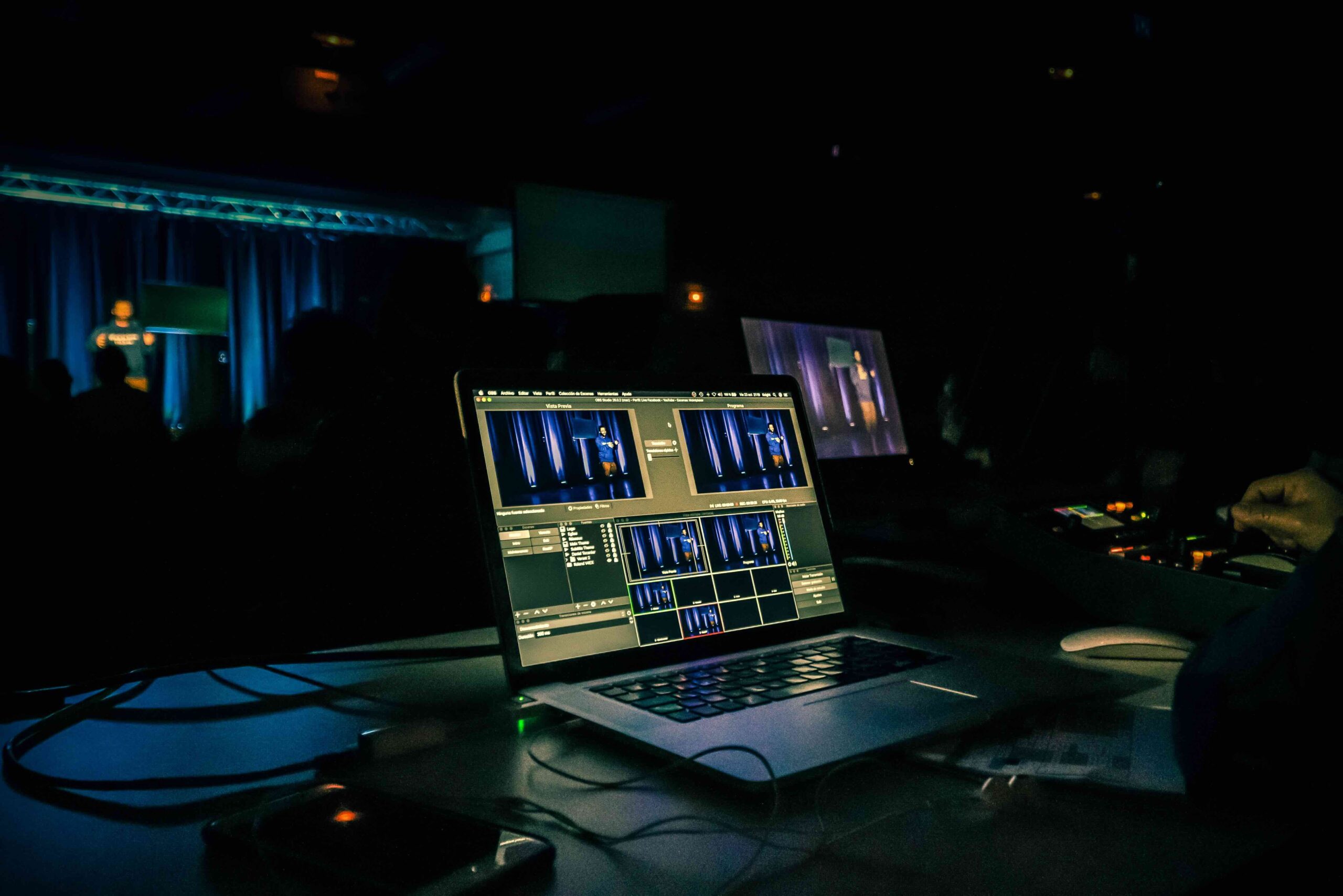
WeWork
Photo by Charles Koh on Unsplash
Hulu’s new documentary on the rise and fall of WeWork focuses on its charismatic, egotistical founder and CEO Adam Neumann, who was ultimately the company’s downfall.
In the tale of how the cult-of-personality (rumored to be played by Jared Leto in an upcoming film adaptation) created the coworking empire and subsequently caused its downfall, WeWork: or The Making and Breaking of a $47 Billion Unicorn interviews employees of the company who were there from the beginning to pinpoint what went right that led to the inescapability of WeWork a few years ago, and what went so horribly wrong.
WeWork went from being valued at $47 billion to collapsing in a matter of months, largely because of the unchecked whims of Adam Neumann, who expanded without consideration of cost, and because of the the false promises made by the company’s mission and its overinflated value.
WeWork: Or the Making and Breaking of a $47 Billion Unicorn • Official Trailer – A Hulu Originalwww.youtube.com
Above all, the documentary exposes the hollowness of value-driven corporations, and exposes how WeWork used its message of community to fuel the ambitions of those at the top. It also reveals how much of the company fell prey to its idealization of the rat race of hustle culture for very little reward.
So much of the documentary was surprising — the extent to which people bought into their brand’s message, the internal cultish loyalty to Adam as the leader — and almost all of it seems, from the outside, insane. Startups are notoriously fickle, but WeWork’s meteoric rise and fall was so catastrophic that it makes sense that there was more to its implosion than meets the eye.
The common lore of its downfall focuses on the loss of its major investor, SoftBank, alongside its reckless spending combined with its ambitious growth, but The Making and Breaking of a $47 Billion Unicorn shows how much was wrong at the core of WeWork and its culture from the start.
Critics of hustle culture and corporate activism (read: us) are not surprised by this capitalist Wizard of Oz story. Here are some of the wildest, most warped aspects of the WeWork documentary, which make us wonder how the employees on the inside didn’t recognize their unicorn as an overinflated bubble waiting to burst.
Major Frat Vibes
Start-ups have become notorious for their strange bro-heavy office cultures — which often means various ping-pong tables and lots of flip flops. As a co-working space, WeWork’s frat vibes manifested less in the office and more in every single other aspect of the business.
Having grown up idolizing the parties in American college movies, Adam Neumann made sure to integrate them into his business model. The company had retreats for its employees, called summer camps, which looked more like EDM festivals than team meetings.
The summer camp clips looked like outtakes from Project X or Superbad, the kind of unhinged parties thrown by people who have never actually been to a good party and instead compensate by filling the budget with kegs and doing a lot of fist pumping.
But Also Kind of GOOPy
A strange component that was essential to concocting the overall in-cohesive WeWork vibes was Neumann’s wife, Rebekah. A cousin of Gwyneth Paltrow, Rebekah’s contribution to the WeWork dynamic was the kind of vacuous wellness-talk that feels very GOOPy, which is no real surprise.
Between ragers at the summer camps, the Neumanns would stand on a giant concert-like stage and talk about their vision for the company. Adam’s original conception had always been focused on community, and Rebekah’s influence made it increasingly more spiritual and less coherent.
Talk of “raising consciousness” became somehow tied to the mission of the company thanks to Rebekah, who was instrumental in founding the children’s school that eventually became an offshoot of WeWork, WeGrow.
WeGrow
The whole concept of WeGrow was unhinged, but The Making and Breaking of a $47 Billion Unicorn exposes just how disconnected and delusional Rebekah and Adam actually were.
Adam’s first venture had been for kids — a line of pants that were padded at the knees so young children could crawl comfortably, with the tagline “just because they don’t tell you, doesn’t mean it doesn’t hurt.” The company failed, for obvious reasons, but with seemingly limitless streams of money to channel into WeGrow, the children’s school didn’t meet the same fate despite its glaring conceptual flaws.
WeGrow was essentially an elementary school which claimed to offer a more holistic education, boasting curriculum features such as language immersion, yoga, meditation, music, and weekly farm visits. The school claimed to have community as its focus — but with a price tag ranging from about $36,000 to about $42,000, the community it was fostering was pretty narrow.
After the Neumanns were ousted from the company, WeWork closed WeGrow, but Rebekah quickly bought it back — so it’s still standing, churning out the minds of tomorrow… God help us.WeLive
WeGrow wasn’t the only offshoot of the co-working part of the WeWork company. Pretty early on, WeWork launched WeLive, an apartment complex for WeWork members. The living community was mostly full of young, single people who could drop everything to essentially live in a WeWork.
Designed with the same functionality and intentionality as the co-working offices, the living spaces were built to foster work and community. One of the interviewees who lived in a WeLive describes being called by a friend about an opportunity for “the coolest people in New York,” if he could break his lease without really knowing the details.
These kinds of hyperbolic sales pitches and high stakes trust that the company demanded were embedded in its culture from the beginning, and effectively enough to fill the WeLive spaces immediately upon opening. Residents describe their social lives shrinking to their relationship with other residents, with their outside friends barely visiting more than once.
At its peak, a person could have worked in a WeWork, lived in a WeLive, and taken their child to WeGrow to have a life ruled by a company posing as a “community.”
Overall: Very Cultish
If the extensive nature of the “We” company sounds cultish, it’s because it kind of was.
In the middle of the documentary, as the tables begin to turn, a former WeWork employee tells an anecdote about trying to explain the company to an outsider, to be met with the question, “brother, are you in a cult?”
From the beginning, the company was inextricable from Adam Neumann and his energy and his vision. More than once in the documentary, Neumann leads chants along the lines of “when I say We, you say Work,” and the room erupts in the cacophonous sound of a quasi-cult.
Employees describe being taken in by Neumann’s infectious energy and feeling like their work was directly linked to their self worth. Convinced they were changing the world, the work they could do for the company felt like what they could do for the greater good.
So, with the fall of the company and its charismatic CEO came the fall of the ideal, which left employees disillusioned and disjointed.
The Delusion to Disillusionment of Former Employees
What makes WeWork: or The Making and Breaking of a $47 Billion Unicorn so compelling was the fact that it is mostly filled with firsthand accounts from former employees who had been working at the company for a long time, and most of whom were very close to Neumann and the C-Suite.
It’s easy to imagine a version of the WeWork story in which the delusion persists despite Neumann’s departure — after all, WeWork is technically still standing. However, from Neumann’s assistant to lawyers at the company, the documentary participants describe that the distance from Adam made them realize just how immersed they had been in the world he created.
So much of the classic “toxic workplace” tropes were at play at WeWork, but this was no Devil Wears Prada. The demanding pace was set from the top but it came with a smile, a flick of Neumann’s trademark long locks, and a message about community used to cloak the exhaustive grind culture and capitalist hell the company really was.The Hollowness of the “We”
What made work at WeWork so fulfilling was the promise of being part of a greater collective — the promises of the “We.” But those promises proved fickle when Neumann ordered large-scale layoffs left and right as the company burned money.
Emails were uncovered revealing executives bragging about how many people they had fired in their departments while Adam was buying a $60 million private jet and investing in wave pools.
The Scale of its Profit Losses
Though it eventually became obvious that WeWork was not making the amount of money it said it was, its valuation made it seem valid enough when they first considered an IPO, and the reality of the company’s financials was even more horrifying than anyone assumed.
Neumann, a born salesman, had been spinning rhetoric that the company could “choose when to become profitable” and that its gains were measured on a standard adjusted scale. However, the adjustments WeWork was making to feign profitability were obscene — camouflaging large debt and burning through money with the assumption that their investors would pick up the bill.
Overall, the documentary was an elegy to an “era of easy money and no rules,” according to Bloomberg Quicktake. Neumann reaped the benefits of a time when innovative tech startups were hailed as the new frontier, real estate was changing, and co-working was still just an idea.
However, his massive success came with a God complex which was eventually his downfall, all at the expense of the people he had made believe in him.














